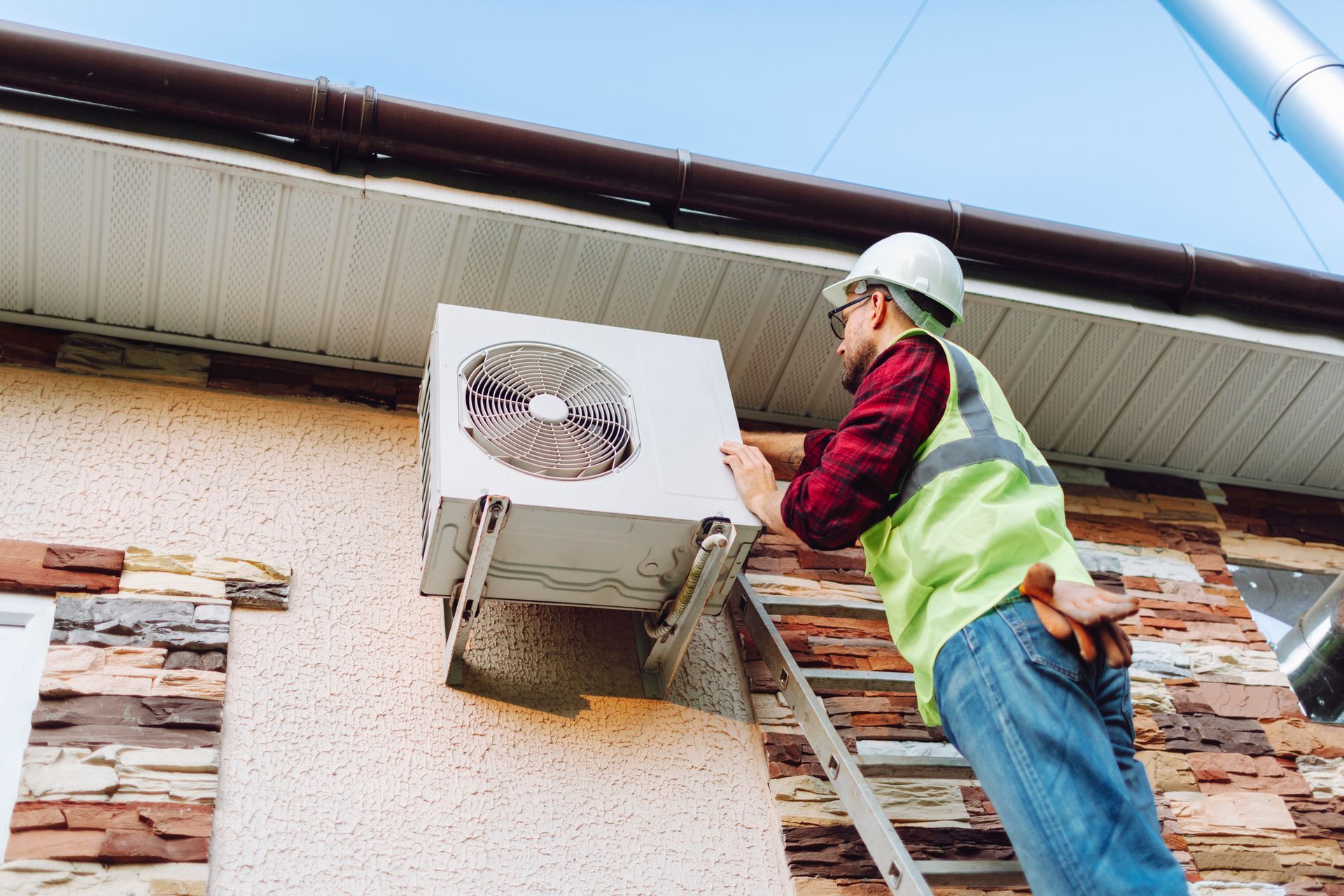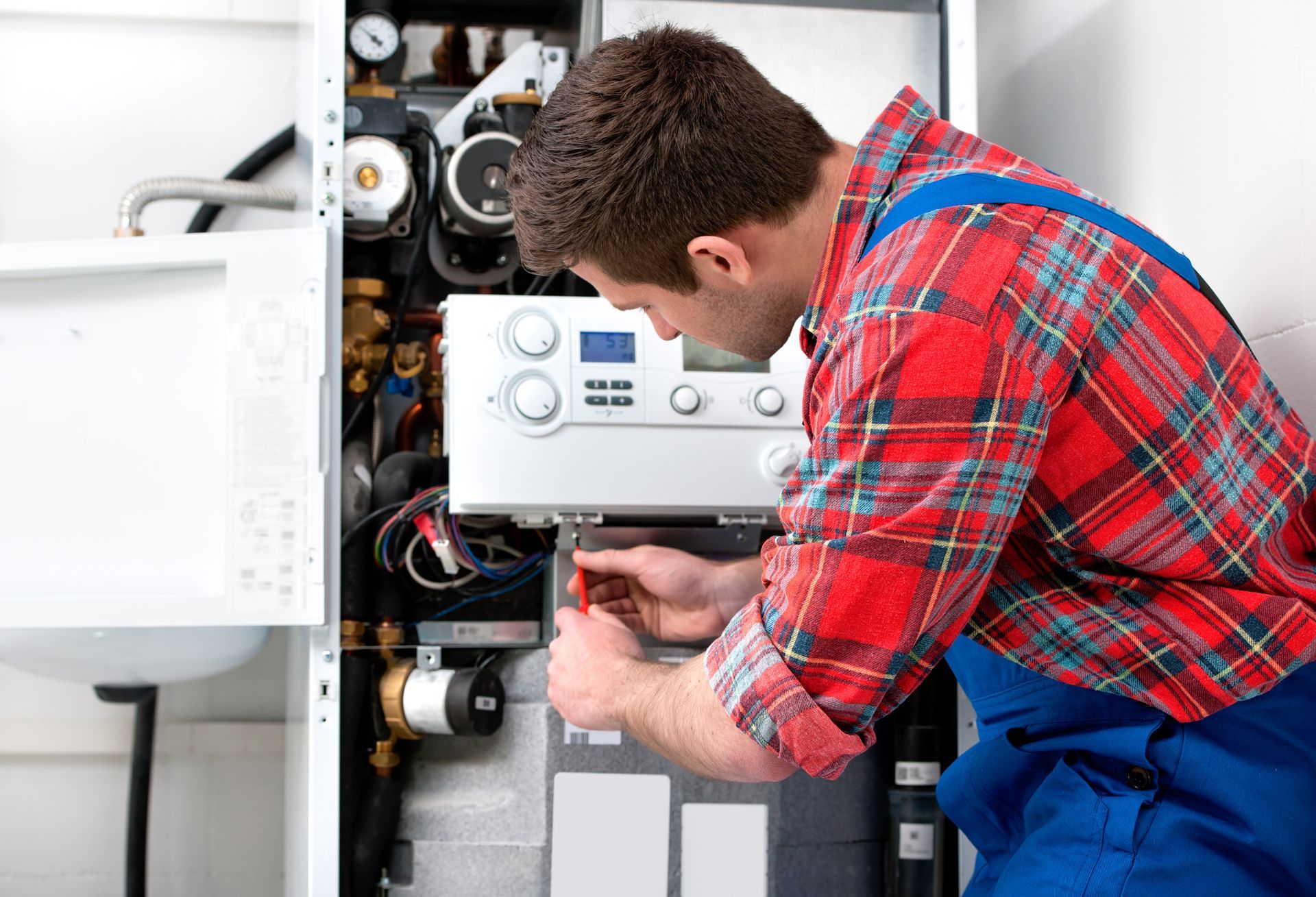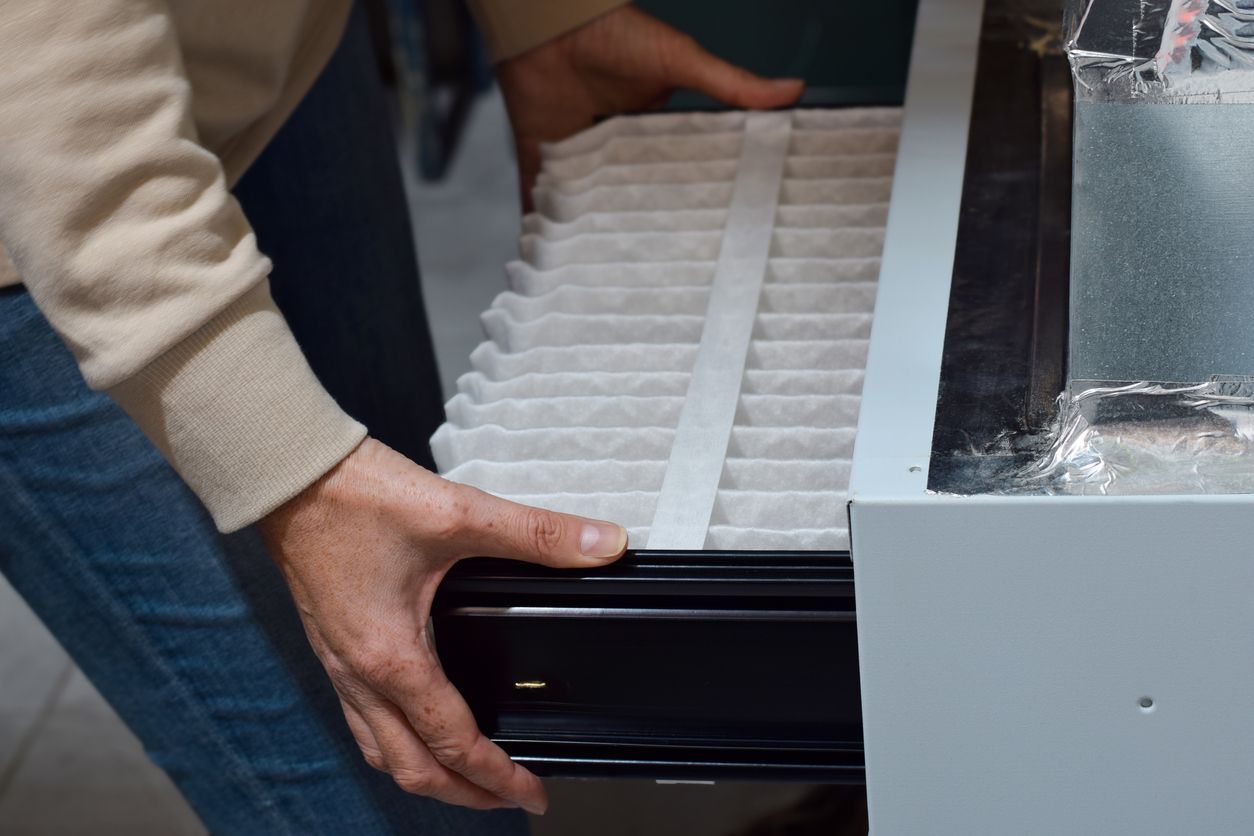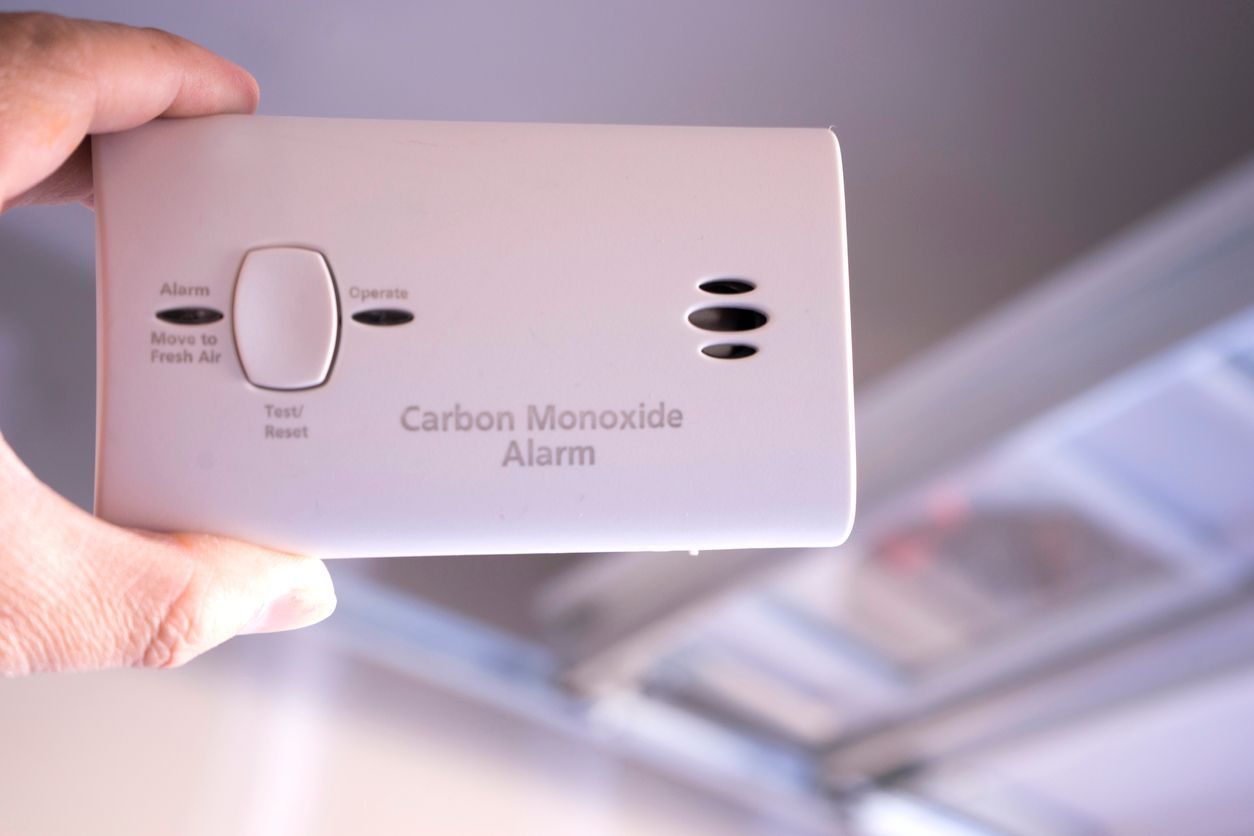AIR CONDITIONING SERVICES IN SAN MARCOS, TX
AIR CONDITIONING SERVICES IN SAN MARCOS, TX
AND THE SURROUNDING AREA
Want an efficient way to heat and cool your home? A heat pump may be your best bet. They’ve been lauded as green investments because they don’t require natural gas or oil like conventional furnaces. Heat pumps can also act as air conditioners in the summer. These are all admirable qualities, but they, alone, don’t make heat pumps a good investment. With that in mind, let’s take a look at how long heat pumps last, how their lifespans compare to the lifespan of other HVAC systems, and how you can maximize your heat pump’s life expectancy. Before we get into all of that, though, it’s important to understand how heat pumps work.
How do heat pumps work?
In the cold months, heat pumps work like an air conditioner in reverse. They draw in warmth from the outside and bring it into your home. In the warm months, this process is reversed, and they work exactly the same as air conditioners – drawing hot air out of your home and transporting it outside. This means that heat pumps don’t create heat like a furnace does – they simply move it from one place to another. There are several different types of heat pumps, but they all work on this same fundamental principle – by moving heat around. They might draw that heat from the air outside, but they can also draw heat from the ground, or even from large bodies of water. Geothermal and water-source heat pumps (which draw energy from the ground or water) are more effective than air-source heat pumps. Ground and water sources maintain a consistently higher temperature than the air during colder months. There are also hybrid heat pumps which combine air-source and geothermal or water-source heat pumps. Finally, there are ductless heat pumps , which are air-source heat pumps that are used to heat and cool a single area, like a bedroom. You may be wondering why we’ve gone into such depth explaining the different types of heat pumps. The answer is simple: they all have different lifespans.
Lifespan of a heat pump
The lifespan of a heat pump depends on a few factors, including:
- The area where the heat pump was installed
- The type of heat pump being used
- How well-maintained the heat pump is
First, let’s look at air-source heat pumps. An air-source heat pump will last, on average, about 10-12 years. Ductless air-source pumps have about the same lifespan as ducted air-source systems. A brand new, well-maintained air-source pump might even last upwards of 15 years. That is, if it’s one of the heat pumps in San Marcos. San Marcos, you see, is far enough from the coast that salinity in the air isn’t likely to cause any problems. Near the coast, however, salt can enter into the system and promote wear and tear. Coastal air-source heat pumps may only last about 7 years – if that. Geothermal and water-source heat pumps, on the other hand, are built to last a very long time. They use a system of underground (or underwater) pipes in what’s known as a loop to transfer heat. These loops can last 50+ years, according to the Department of Energy . They’re also the most expensive component to install. You’re unlikely to need to install a loop more than once in your life. They also virtually never require any repairs. The indoor components of geothermal and water-source systems last less time, however. Those have an average lifespan of around 24 years, and are more likely to need repairs. Hybrid systems will, of course, require repair or replacement more often than geothermal or water-source systems, as their air-source components still have a lifespan of around 15 years.
Lifespan of a HVAC system
We’ve now established that air-source heat pumps last about 10-12 years, while geothermal and water-source heat pumps last about 24 years, with their loops lasting 50+ years. How does that compare to the lifespans of traditional HVAC systems? Carrier, one of the leading manufacturers of air conditioners, estimates that most air conditioning units last 10-15 years . That’s comparable to the lifespan of your average air-source heat pump. That makes a lot of sense – air-source heat pumps, after all, work exactly like air conditioners in the summer. Let’s stick with the same source for the lifespan of a furnace. Carrier predicts the average furnace will last 15-20 years ; longer with routine maintenance. On this front, air-source heat pumps lose out – furnaces tend to be longer lasting. The truth is, these comparisons aren’t exactly apples-to-apples. A furnace may last you 20 years while your air conditioner lasts you 15, but how many seasons are they lasting for? You’ll only use your furnace in the winter, so let’s call that 20 seasons. Your air conditioner will be used in the summer, and you may use it during part of the spring and fall. Let’s call that 1.5 to 2 seasons a year; that’s about 22-30 seasons. Your air-source heat pump, on the other hand, will be useful during the winter, part of the spring, part of the fall, and all summer long. That’s about 2.5 seasons – bringing its total useful lifespan to about 37.5 seasons assuming a 15 year lifespan. Geothermal and water-source heat pumps blow all of these figures out of the water. With a 24 year average lifespan for indoor components and a 50+ year average lifespan for outdoor components, you’ll rarely ever need to replace any part of your heat pump.
Maximizing a heat pump’s life expectancy
To get the most out of your heat pump, you’ll want to extend its lifespan with regular maintenance. The best way to go about this is to hire a technician to do it for you. The technician will, among other things:
- Check and clean the systems from obstructions and dirt
- Find and fix leaky ducts
- Check for refrigerant leaks and verify that the refrigerant charge is optimal
- Inspect, clean, maintain, and repair electrical terminals
- Inspect, clean, maintain, and repair belts and motors
- Inspect and repair the thermostat
There are a number of things that you can do to improve your heat pump’s performance without a technician. Replace or clean filters monthly or as needed. Always set your heat pump’s fan to “Auto” instead of “On”. You should also clean and maintain the registers found in your home, straightening any bent fins. Finally, your home’s insulation can affect your heat pump. The more well-insulated your home is, the less your heat pump will have to work.
The bottom line
The life expectancy of an air-source heat pump is comparable to the life expectancy of an air conditioner, and shorter than the life expectancy of a furnace – but only if you look at their lifespan in years. If you look at their lifespan over how many seasons they’ll be used, air-source heat pumps win out. Geothermal and water-source heat pumps far outperform other HVAC systems in terms of lifespan. Of course, lifespan isn’t the only thing that matters; you’ll also want to consider upfront cost, and energy efficiency. That said, if the lifespan of your heating and cooling system is what’s most important to you, you’ll find that heat pumps are hard to beat. Contact Comfy Air to inquire about a heat pump today.
The post How Long Do Heat Pumps Last? appeared first on Comfy Air (Comfy Air DBA).

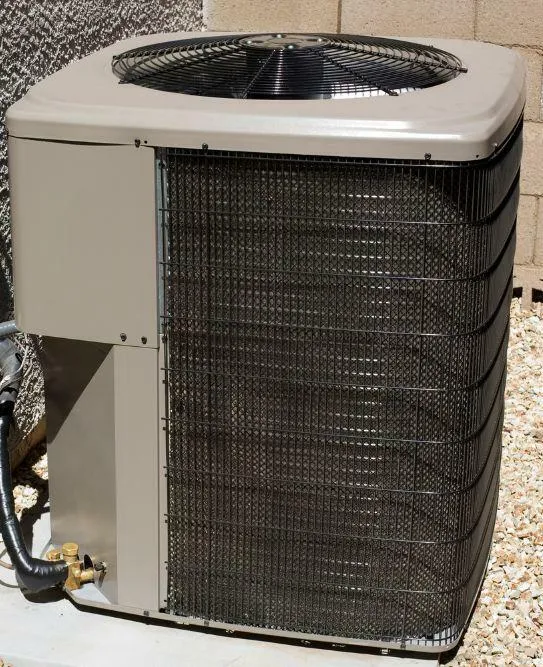
FINANCING OPTIONS ARE AVAILABLE
FINANCING OPTIONS ARE AVAILABLE
CONVENIENT PAYMENT OPTIONS | SIMPLE APPLICATION PROCESS
Financing starting at 7.99%
CONVENIENT PAYMENT OPTIONS | SIMPLE APPLICATION PROCESS

Comfy Air is proud to be a Daikin Dealer and services all makes and models!
San Marcos, TX
Buda, TX
Dripping Springs, TX
Kyle, TX
New Braunfels, TX
Seguin, TX
South Austin, TX
Wimberly, TX
Cibolo, TX
Lockhart, TX
Kingsbury, TX
Luling, TX


ALL RIGHTS RESERVED | COMFY AIR INC
TACLA60047C
PHONE
ADDRESS
HOURS OF OPERATION
- Mon - Sat
- -
- Sunday
- Closed

